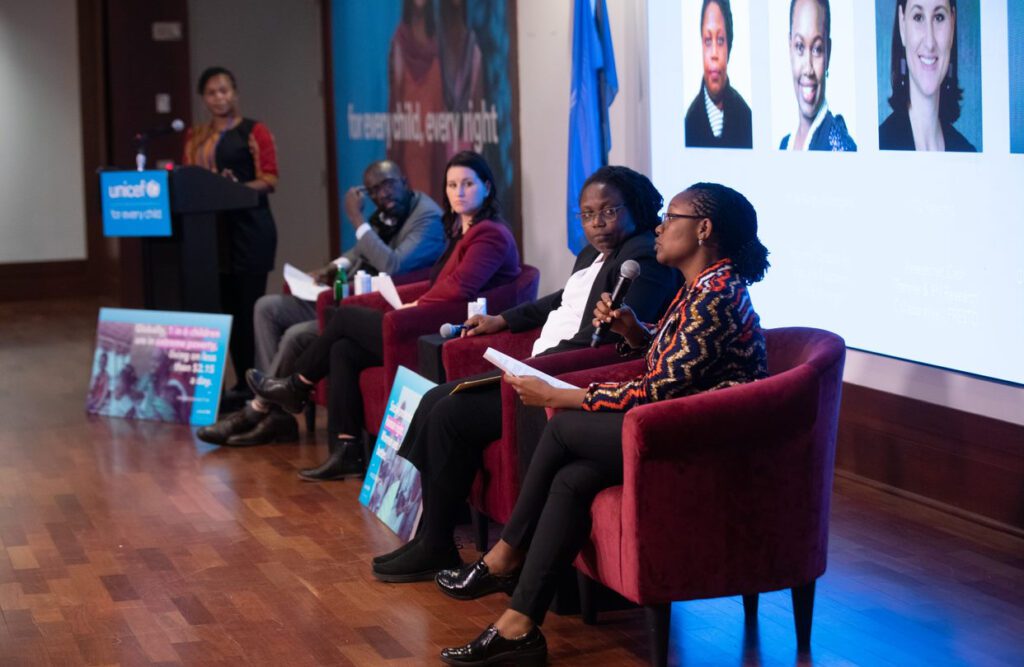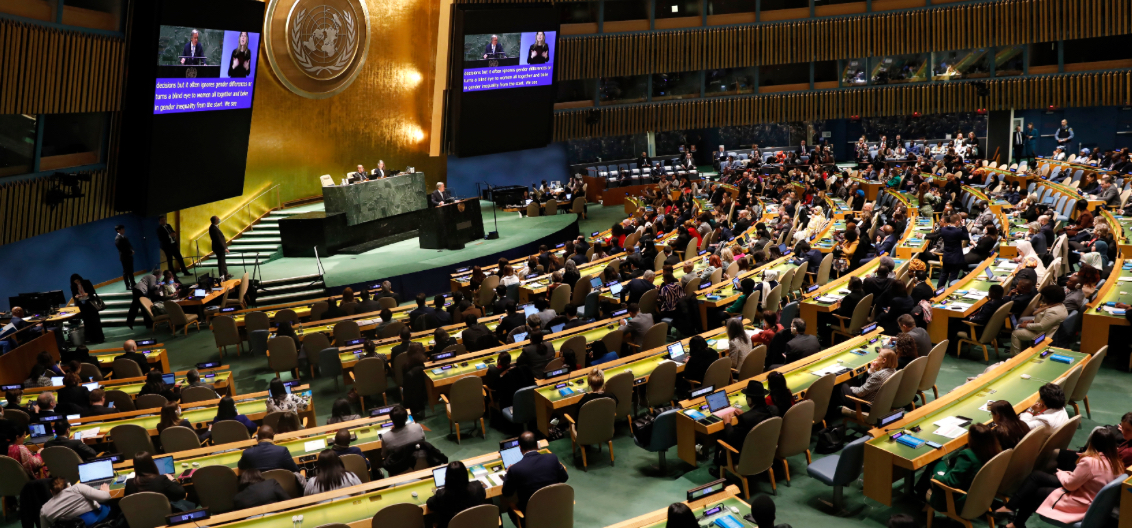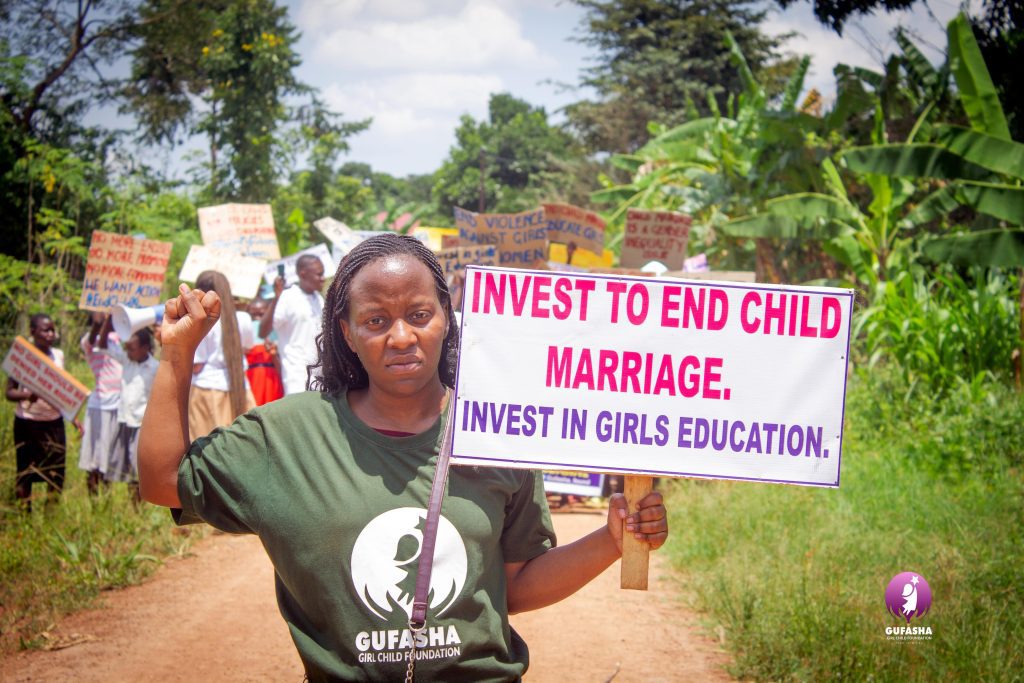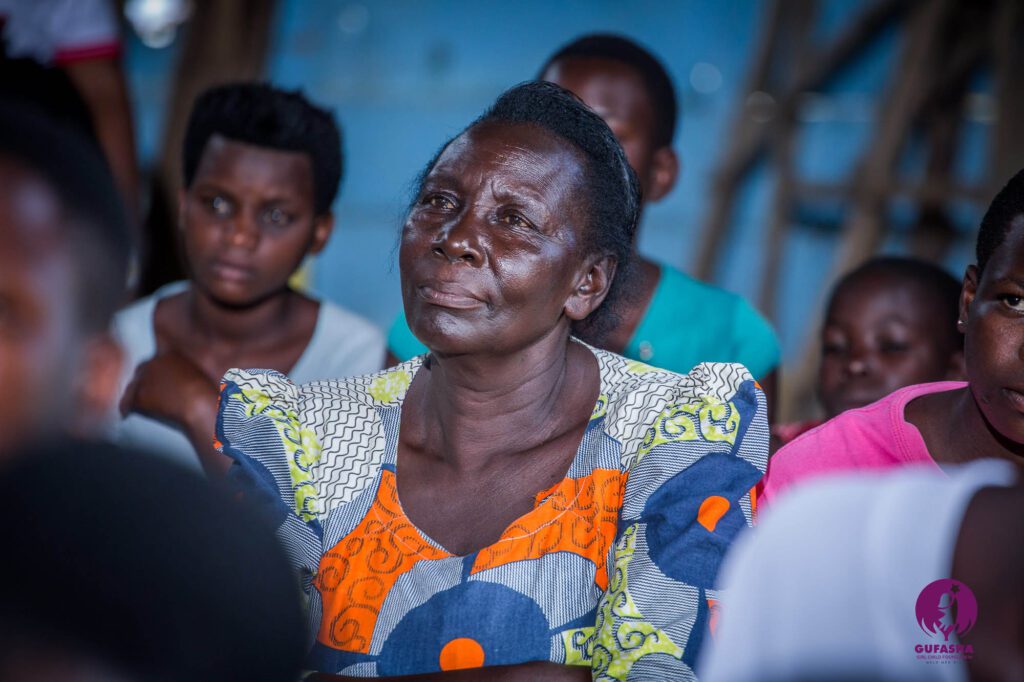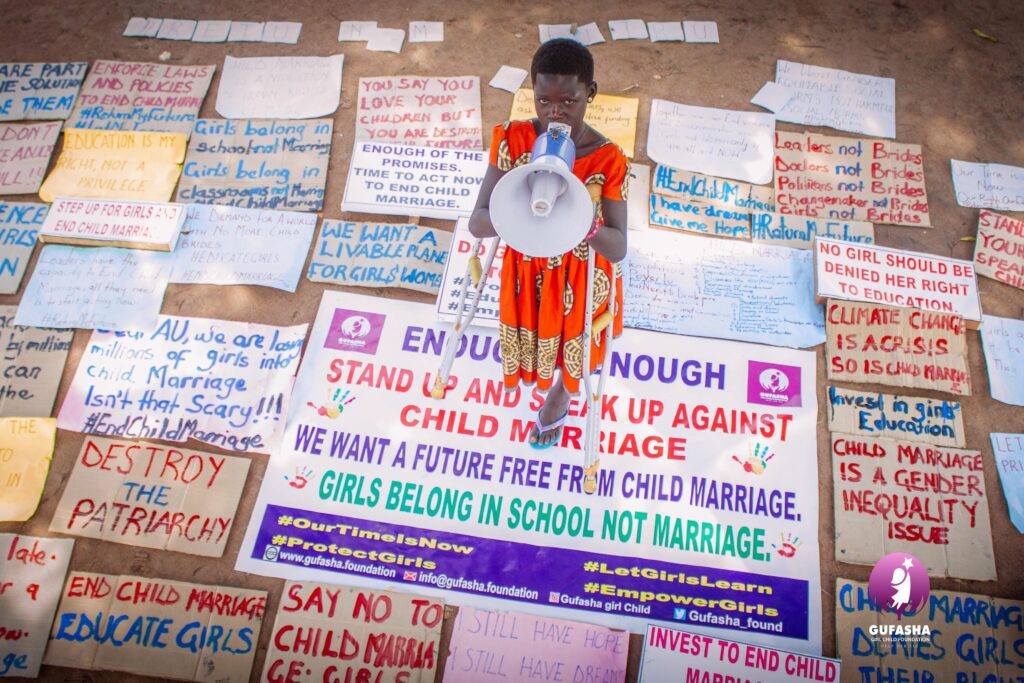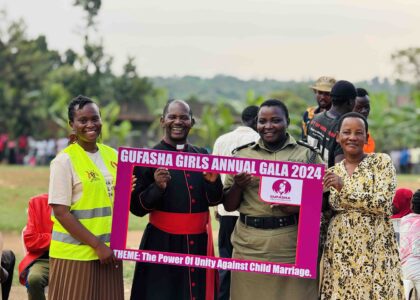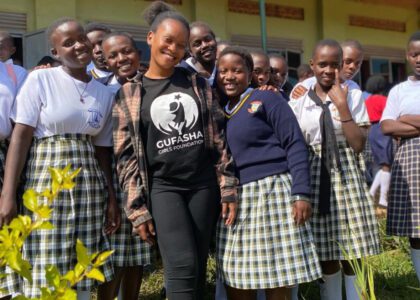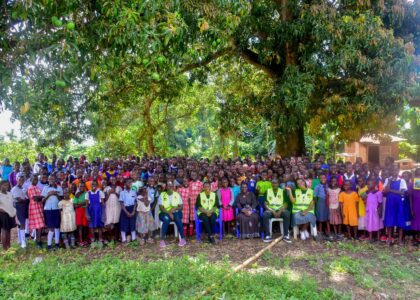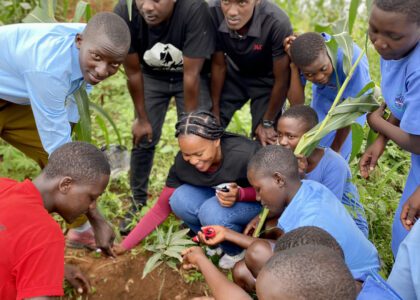The Commission on the Status of Women held annually at the UN Headquarters, serves as a platform for governments, policy makers, civil society organizations, and gender equality advocates to discuss progress, challenges, and strategies to advance gender equality and the empowerment of women worldwide. This year, the theme for the 68th CSW was “Accelerating the achievement of gender equality and the empowerment of all women and girls by addressing poverty and strengthening institutions and financing with a gender perspective”.
Gufasha Girls Foundation’s participation in the 68th Edition of the Commission on the Status of Women from 11-22 March 2024 was being represented by our Founder and Team leader Joan Kembabazi and centered on advocating for the rights of girls and women particularly the right of girls being free from child marriage, the right to education, the right to freedom, Sexual and Reproductive Health Rights, Gender and Climate Justice, Women Economic Empowerment and Youth meaningful inclusion, engagement and Empowerment.
Conference Highlights
The conference commenced with an opening session and keynote addresses by eminent figures including UN Secretary General Mr. Antonio Guterres, UN Women Executive Director Sima Bahou, President of the UN General Assembly Dennis Francis. “Women have less access to land, natural resources and financial assets. They suffer the impacts of climate change more than men. And they are more likely to be food insecure. Poverty intensifies the risks of violence and violence makes women poorer.” Mr. Antonio Guterres’s speech and urged member states to support efforts to increase the investments that will achieve SDG 5 on gender equality and turbocharge progress across the entire 2030 agenda.
There is no Sustainable Development Goal that can be attained without gender equality. With a mere six years to go, gender equality remains our best hope to get back on track to 2030.
Ms Sima Bahous in her speech at the CSW68 opening session.
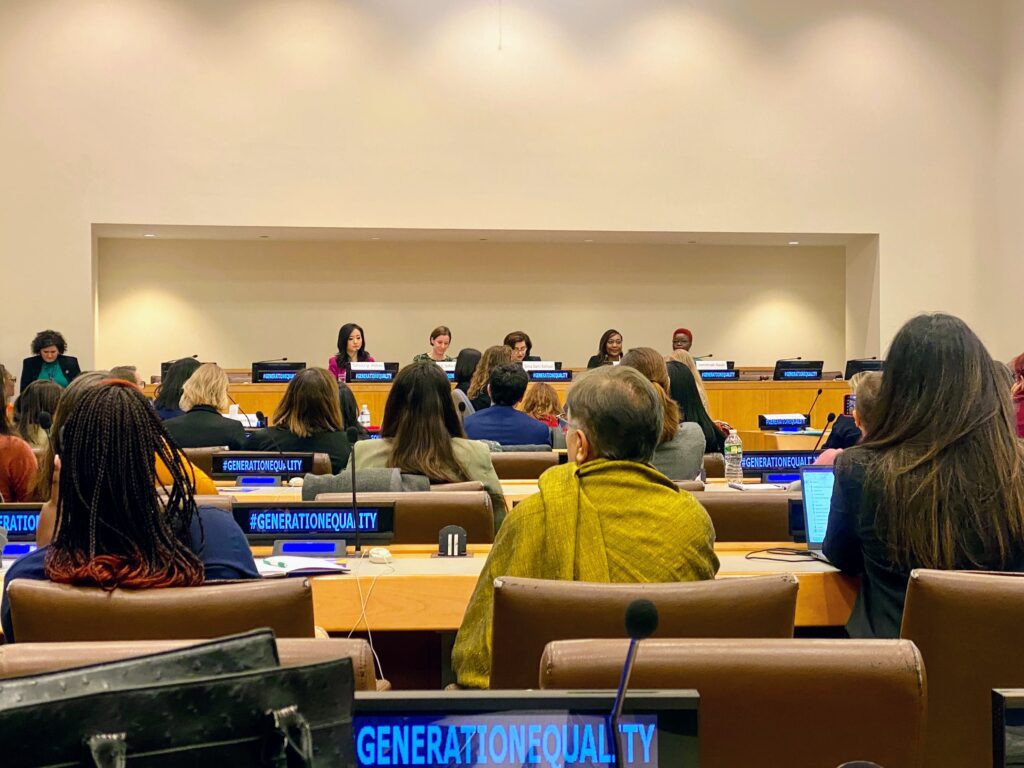
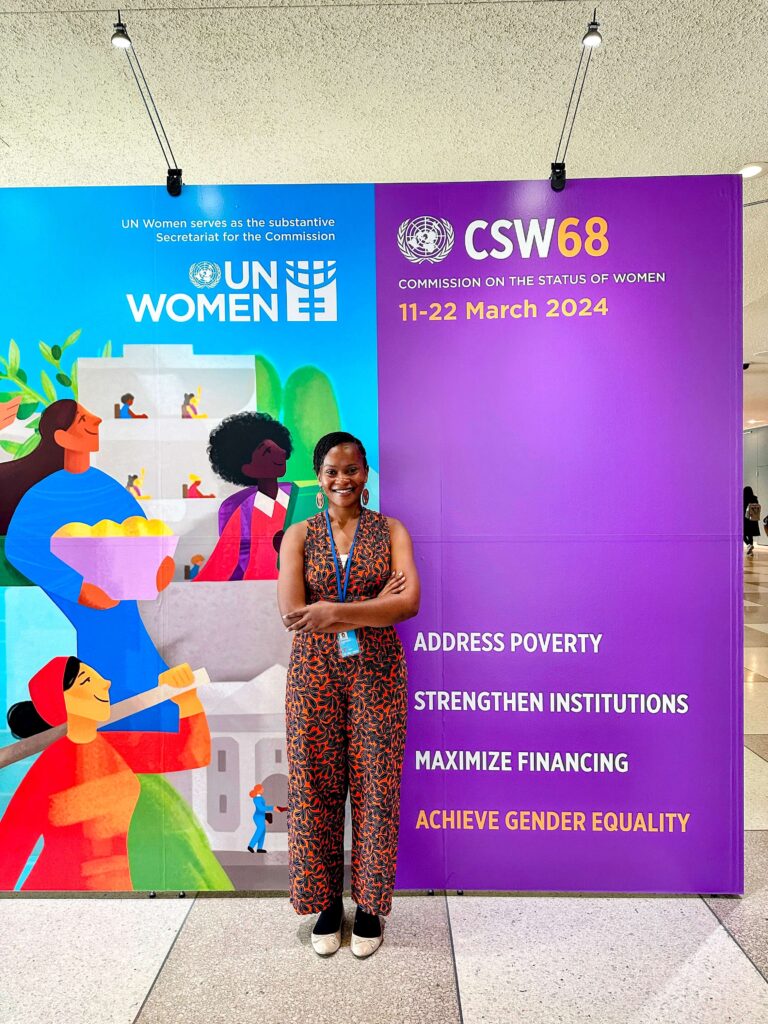
Other speakers shed light on the challenges faced by girls and women from marginalized communities and the importance of intersectionality in addressing gender disparities and the urgent need of substantial funding to grassroots women-led and feminist organizations.
From highlighting the role of gender equality advocacy to advocating for policy reforms, to discussing the challenges and best practices in advancing gender equality to recognizing the crucial role of young people in driving social change and promoting intergenerational dialogue, the conference featured a series of panel discussions and side events that provided platforms for dialogue, knowledge-sharing, youth engagement, and networking from and with eminent speakers and delegates including government officials, UN representatives, feminist activists and civil society leaders.
We attended various powerful side events like Advancing the ending child marriage agenda, Linking Agendas, Bridging Silos, From data collection and dissemination and use, Investing in prevention of GBV, Financing and Accountability of Gender equality and women empowerment that highlighted the need to end child marriage , promote girls education and the complex issues surrounding gender equality including climate change, lack of Sexual and Reproductive Health and Rights Justice, Poverty among others and the need for multifaceted approaches to address them. In these side events, Joan shared on the firsthand experiences that girls and women face during climate disaster outbreaks in Uganda, the effects of child marriage on the lives of girls, their communities and Uganda as a country and the need to urgent address the sexual and reproductive health needs of girls and women in marginalized communities.
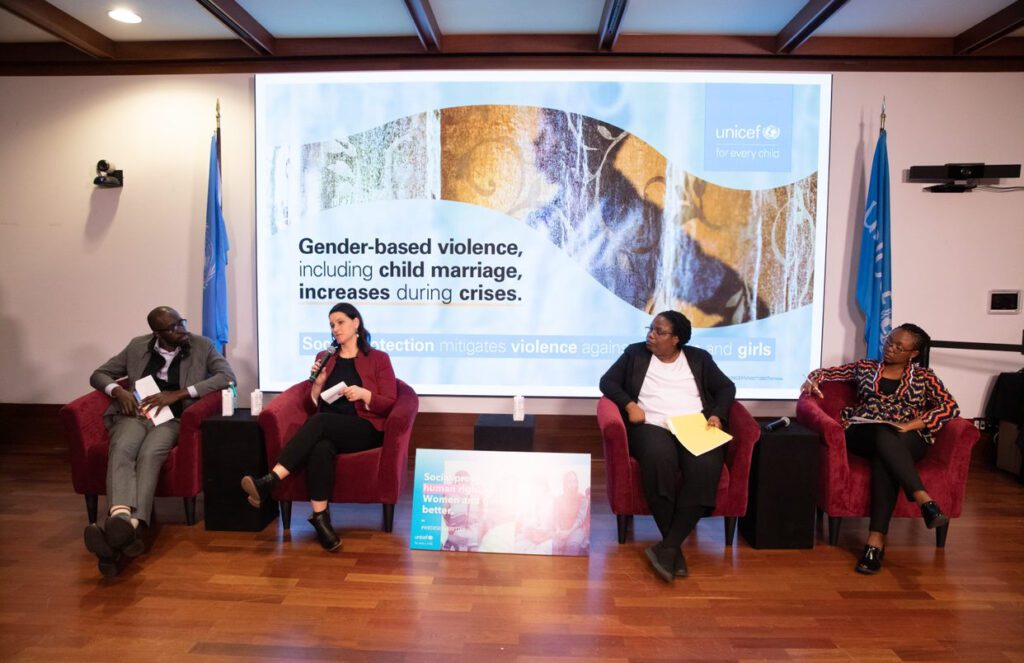
Gufasha Girls Foundation is a commitment maker of the GBV Action Coalition under the UN Women Generation Equality Forum which gave us a privilege to attend side events organized by Generation Equality Forum and addressed by UN Women Executive Director Sima Bahous who urged donors and donor organizations to provide youth-friendly support and funding to grassroots organizations that are championing the gender equality agenda. Joan was able to meet, engage and learn from fellow Commitment makers from different grassroots organization and regions of the World.
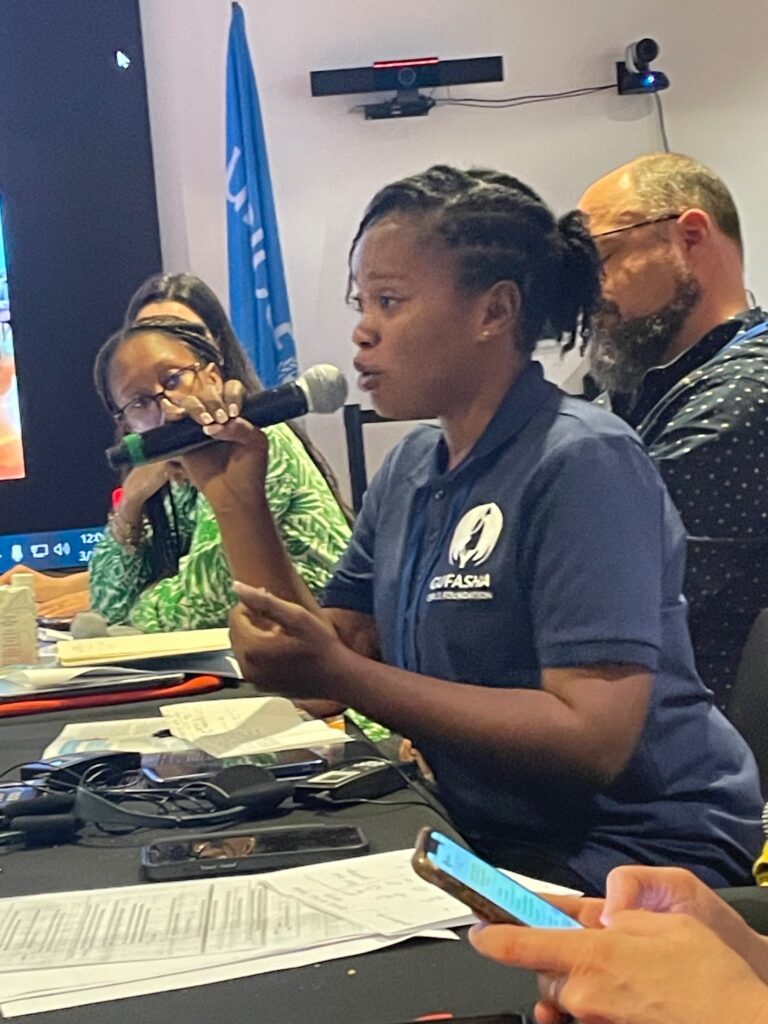
Our Team leader Joan moderated a side event organized and hosted by UNICEF #WEDESERVEBETTER ‘Unlocking the Power of Social Protection for Women and Girls’ on March 13th.This event aimed at amplifying the lived experiences and voices of girls and women with social protection systems in their countries and elevate concrete pathways for participatory policymaking for more gender-responsive and transformative social protection. At the conclusion of the event, Joan urged participants to protect, educate and support girls’ access to economic opportunities and advocate for gender-responsive and transformative social protection systems.
Moreover, as part of our efforts in advocating for gender transformative education, Gufasha Girls Foundation co-facilitated the side event on March 15th “Driving accountability and Leadership: Accelerating Gender Equality in and through Education”, organized by prominent organizations including UN Girls Education Initiative, Transform Education,Plan International , Malala Fund, UNESCO, Education 2030, Population Council .
This interactive event focused on sharing experiences from governments and civil society in taking forward the gender-related commitments on education made at the Transforming Education Summit(TES) which was convened by Secretary-General, Mr Antonio Guterres at the United Nations in September 2022 uniting over 130 countries in commitment to overhaul education systems for a more inclusive, transformative and equitable future.
The event also involved discussing the bottlenecks and challenges that governments, civil society and advocates are facing in pushing forward this important agenda and also how we can more meaningfully work together to ensure that gender equality in and through education helps build an impactful, and meaningful, future for all. Joan urged participants to support, fund and advocate for gender transformative education because girl’ education goes far beyond than having girls in classrooms but also creating safer and non-discriminatory school environments that support girls’ wellbeing and help them thrive.

The conference also recognized the critical role of young people and youth-led organizations in shaping the future of gender equality by not only bringing fresh perspectives and innovative solutions to the table but also effortlessly working at the frontline in their communities to champion the gender equality agenda. Delegates argued that young people shouldn’t just be involved in discussions and decision-making processes, but also be supported with youth-friendly and unrestricted funding and grants to support their work.
Networking
Joan had the privilege of connecting with individuals from diverse backgrounds and prominent figures from Girls Not Brides, Women Deliver, She Decides, Girls Opportunity Alliance, United Nations , Ministers including the Ugandan Minister of Gender, Labour and Social Development, Parliamentarians and other stakeholders and sought collaborations on future projects and initiatives in line with ending child marriage and advancing girls’ rights.
Joan also met Florence Blondel from Population Matters, a UK Charity organization that has continuously supported Gufasha Girls Foundation work and where she acts as a Choice Ambassador since 2021 alongside other fellow young advocates of change.
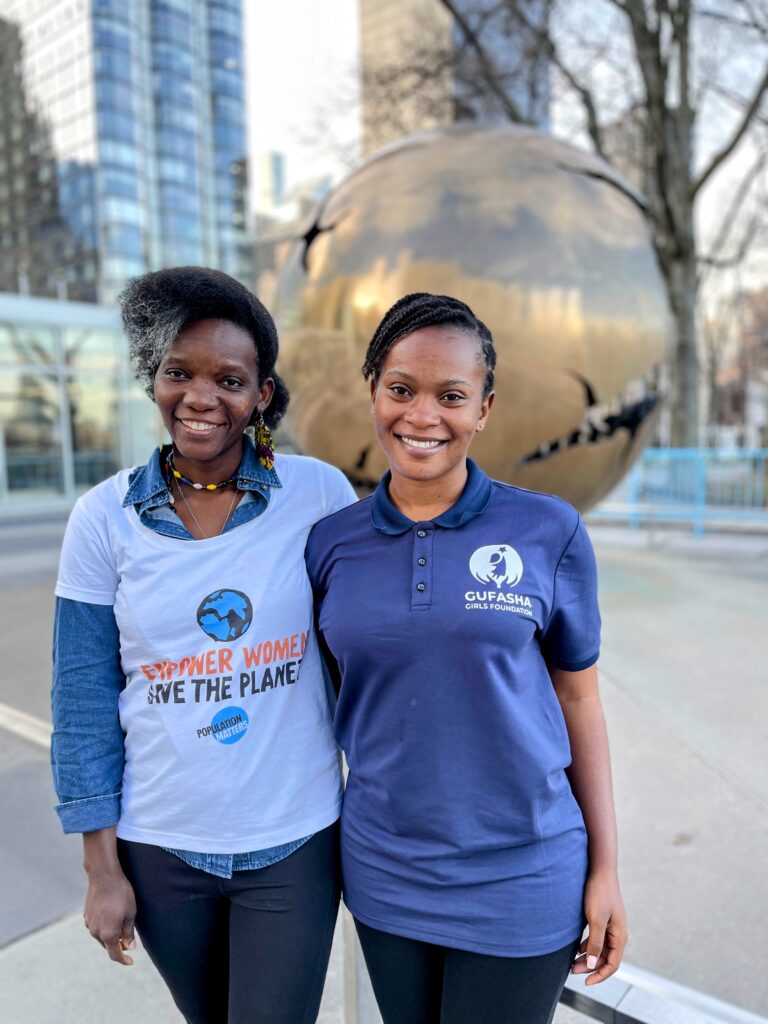
CSW68 also provided us with a platform to disseminate our materials including Our 2023 Impact Report, Organization profile and business cards with QR codes to numerous delegates from different countries and sectors.
Going Forward
Gufasha Girls Foundation recognizes the urgency of issues affecting girls especially child marriage and on reflecting on our experience, knowledge, inspiration and connections made at CSW68, we remain dedicated to continue our grassroots advocacy and action work in the communities of Uganda and work in collaborations with other NGOs and stakeholders to drive faster meaningful change.
